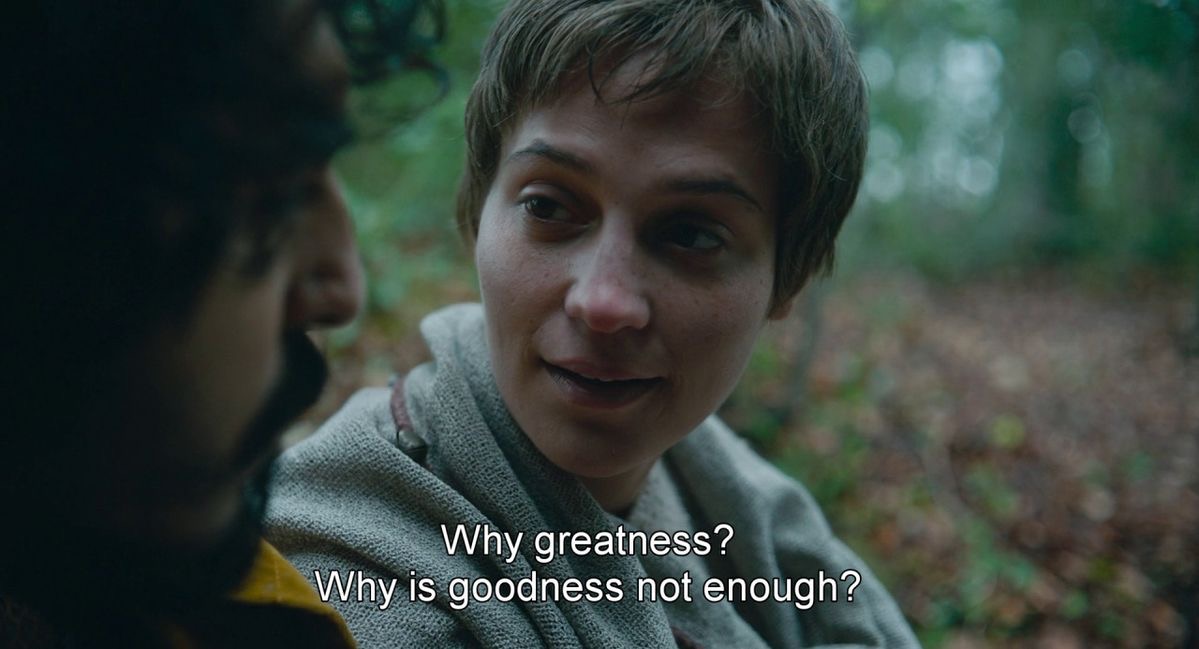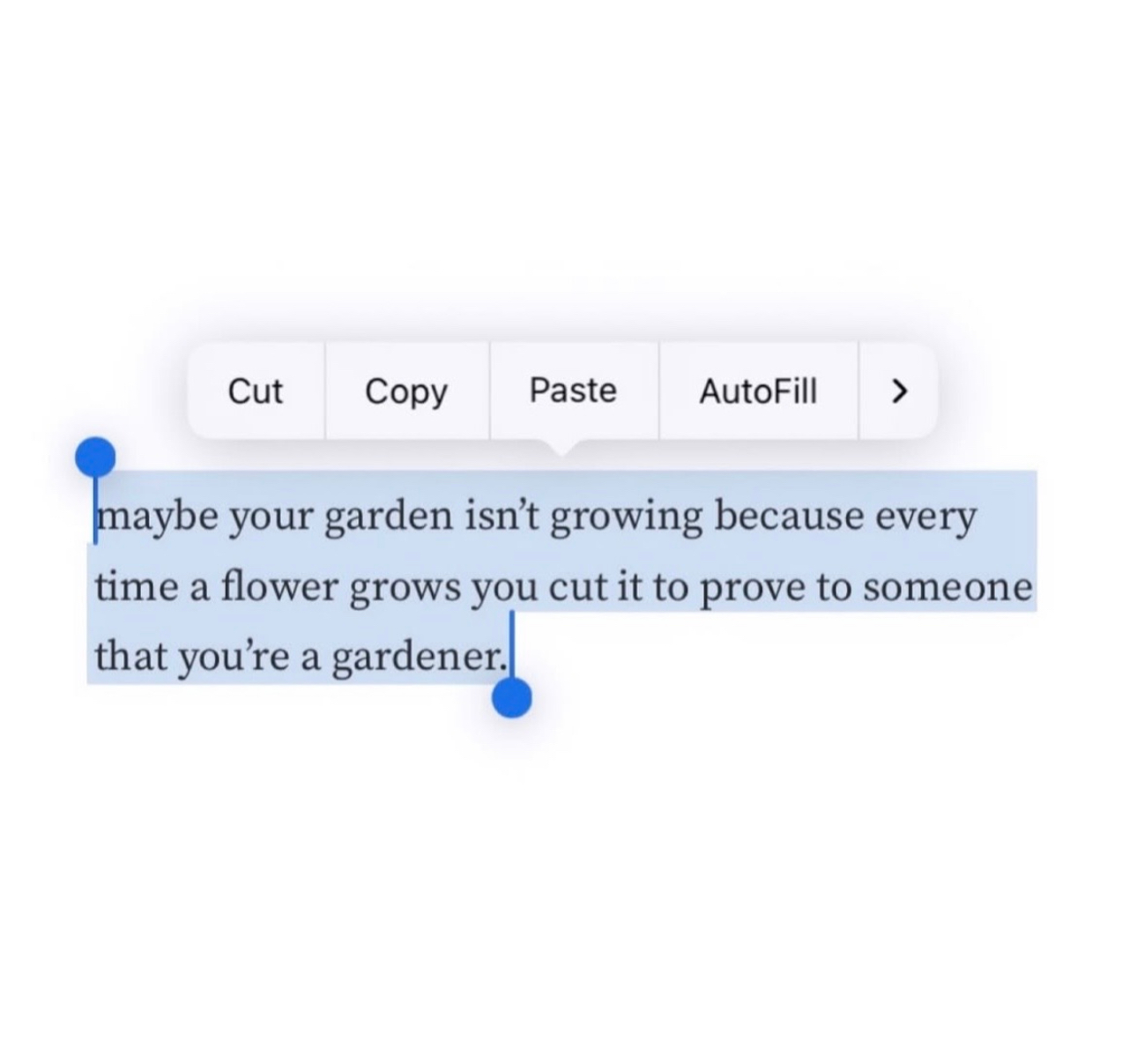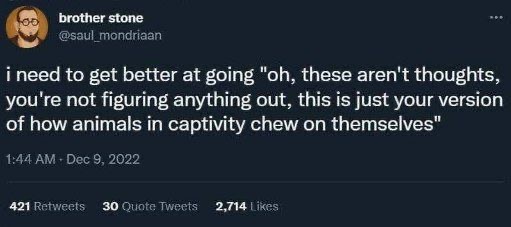notes for therapy


Dissociation: The making of a new, cut-off self, to hold the deadly, disorganizing pain away from the ongoing growth of the logical, goal-directed watching self, the one we need to help us master the world, the one that keeps us safe, the one that knows danger. We have to preserve that left-brain self, so we encode the very strong negative memory
... See moreDon Kerson • Getting Unstuck; Unravelling the Knot of Depression Attention and Trauma
very difficult sometimes to distinguish between "is this a hard thing I'm supposed to work through" or "is it hard because it's the wrong thing and I need to let go"
Michelle Elisabeth Varghesex.commy job/career
I married a wonderful man at the age of 48, went back to school at 50, got a Masters’ and license as an MFT at the age of 56, and published my first book at 86.
Patricia Rosssubstack.comLastly, dissociation asks us to consider Who is leaving, and who is left behind when we dissociate?


